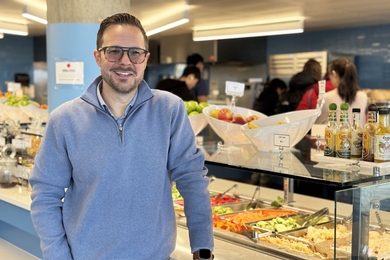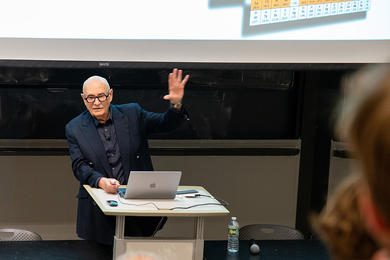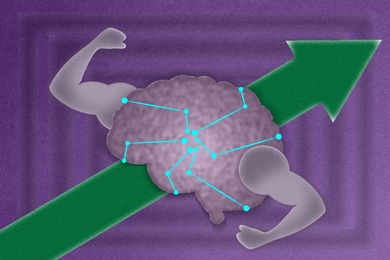Professor Ann Fetter Friedlaender, a noted economist who was the first woman academic dean at MIT, died Monday, Oct. 19, at Beth Israel Hospital. Dr. Friedlaender, who had been ill with cancer for several years, was 54 years old.
Dr. Friedlaender held dual appointments in two MIT departments as the Class of 1941 Professor of Civil Engineering and Economics. She was an authority in the field of public finance, with a specialty in transportation studies.
Dr. Friedlaender also had been the first woman to head an MIT academic department, serving as head of the economics department from January, 1983, until her appointment as dean.
As the first woman to head one of MIT's five schools, she served as Dean of the School of Humanities and Social Science from 1984 to 1990.
She was deeply involved in a reassessment of the undergraduate program, playing a leading role in bringing about curriculum changes that strengthened the humanities, arts and social science core requirement for graduation while also establishing a minor in those areas.
Her successor, Dean Philip S. Khoury, said that Dr. Friedlaender "contributed enormously to strengthening the profile of the humanities faculty by ensuring many excellent appointments at the junior and senior level and by enhancing the stature and reputation of the humanities within MIT and in the wider academic world."
"Under Dean Friedlaender's leadership," he said, "the School of Humanities and Social Science has been a much more active contributor than ever before to the overall educational and research mission of the Institute."
MIT Chairman Paul E. Gray, who served as president when Dr. Friedlaender was dean, said: "Professor Friedlaender provided distinguished leadership of sustained effectiveness to the School of Humanities and Social Science at a time of rapid change. She reorganized the Humanities Department, introduced the Writing Requirement and undertook a comprehensive review, restatement and implementation of Institute requirements in the Humanities, Arts, and Social Sciences. She changed the nature of undergraduate education at MIT and her influence will be felt for years to come by many generations of students. All of us who had the good fortune to work with her have been enriched by her friendship and her supportive, insightful colleagueship. Her death leaves a great emptiness, both personal and institutional."
When Dr. Friedlaender stepped down as dean to return to teaching and research in the Department of Economics, the then provost, Professor John M. Deutch, described her as "one of the best deans to have graced MIT in its history," adding, "She is a person of enormous wisdom and her accomplishments for the school have been just as enormous."
During her tenure as dean, Dr. Friedlaender took the lead in undergraduate curriculum reform by sponsoring the restructuring and rejuvenation of the Humanities, Arts and Social Science distribution system and its new minor program. She also sponsored the highly successful Burchard Scholars Program for undergraduates who excel both in the humanities, arts and social science and in engineering and science.
In her reach across both the undergraduate and graduate curriculum at MIT, she sponsored her school's freshman experimental unit, the Integrated Studies Program, and she helped to establish MIT's first new doctoral program in 15 years, the PhD program in the History and Social Study of Science and Technology.
Dr. Friedlaender, a native of Philadelphia, received a BA in economics from Radcliffe College in 1960 and a PhD in economics from MIT in 1964. She was a Fulbright Lecturer in 1964-65 at Svenska Handelshogskolan in Helsinki, Finland. Between 1965 and 1974 she was lecturer, assistant professor and professor in the Department of Economics at Boston College. She was a visiting professor in the MIT Department of Economics in 1972-73 before being appointed professor of economics and civil engineering in 1974.
Professor Friedlaender has served on committees and boards of a number of public and professional organizations, among them the American Economic Association, the National Bureau of Economic Research, the National Science Foundation, the Rand Corporation and Conrail.
She has been a member of the boards of several professional economics journals and she has written or coauthored seven books and monographs. The most recent include Transport Regulation: Equity, Efficiency and Competition, with Richard Spady (1981); and Government Finance, with John F. Due (7th Edition, Richard D. Irwin, 1981).
Dr. Friedlaender, a resident of Newton, Mass., leaves her husband, Stephen, an architect, and two sons, Lucas and Nathaniel.
A version of this article appeared in the October 21, 1992 issue of MIT Tech Talk (Volume 37, Number 10).





